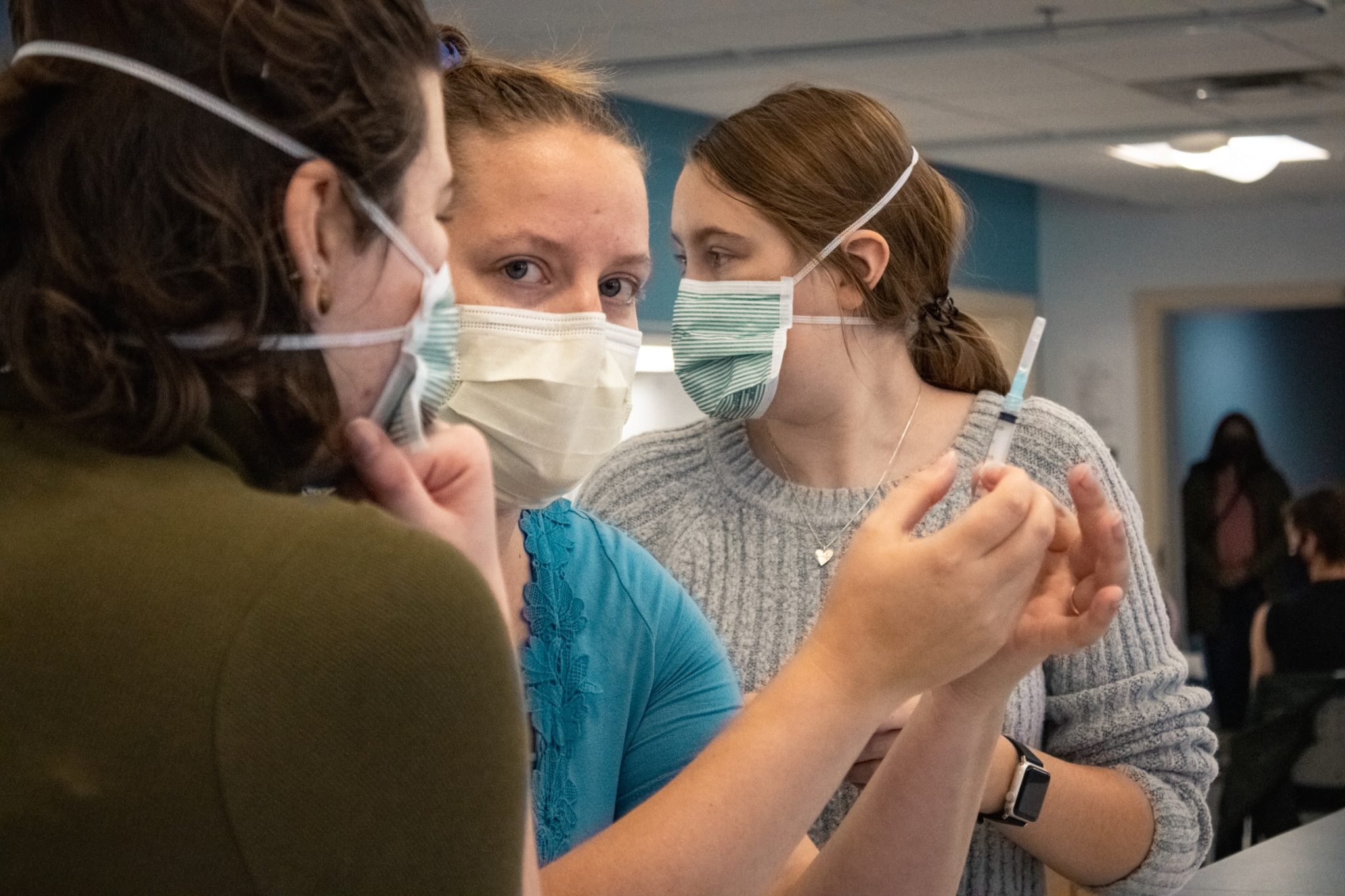Beginning a nursing career path is like setting out on an exciting and gratifying adventure full of many possibilities. A career in nursing may be ideal for you if you have a strong interest in healthcare and helping others. The medical sector places a premium on nurse career progression, so learning about your possibilities is crucial. Depending on your goals, you may pursue a nurse career path that ranges from direct patient care to leadership. Or you may choose to settle with research or teaching positions. So, prepare to study, take on new and exciting challenges, and explore the numerous nursing career options available.

Table of Contents
Education and Training for a Successful Nursing Career
It would be impossible to exaggerate the value of education in nursing. Aspiring nurses can’t give the level of care patients need without formal education. It prepares students for a rewarding nursing career path, boosting their chances of becoming valuable. If you are looking for nursing assignment help, EduBirdie can help with nursing assignment. You will save time and get better results in exchange for their aid.
Those interested in a career in nursing may choose from several different educational tracks. To prepare students for entry-level nursing careers, Diploma programs provide a concentrated curriculum. Many aspiring nurses choose an associate degree in nursing (ADN) program. This is because of the breadth and depth of the instruction it provides. A Bachelor of Science in Nursing (BSN) degree is ideal for those who want to learn more about research, leadership, and theory. Nursing professionals may choose from various subfields by completing a Master of Science in Nursing (MSN) degree. Examples are such as nurse practitioner, nurse educator, or nurse administrator.
Career Options in Nursing
To become a registered nurse (RN), one must follow the standard nursing career path of earning a nursing degree. After that, passing the RN licensing test becomes a requirement. Then, nurses might choose to focus their careers or further their education. Obtaining education and licensure is a must in the nursing profession. Licensure guarantees competence and conformity to professional norms. Nursing education provides the necessary information and skills.
It is possible for registered nurses to develop their careers to that of advanced practice nurses (APNs). For this reason, they often pursue other degrees, such as a master’s or doctorate.
Alternative Career Options within Nursing
There are several subspecialties within the nursing profession. An example is pediatric nurses who focus on children’s health. We also have critical care nurses who tend to patients in intensive care units. These jobs call for specialized education and experience. Non-clinical career options in nursing include nurse educators who instruct future nurses. We also have nurse researchers who promote healthcare via scientific inquiry. Nurses may make a difference in various settings by taking on these tasks.
Nurses who take on specialized jobs can hone down on a particular demographic of patients. They can also choose to specialize in an aspect of treatment that they find most rewarding. There are several ways to contribute to nursing education and research outside the clinical setting. The problems and prerequisites of each choice, yet, are unique.
The Role of Continuing Education and Professional Development in Nurse Career Progression
About nurse career progression, continuing education and professional development are musts. They allow nurses to develop professionally and learn about cutting-edge healthcare innovations. Nurses can even explore new career paths by this means. Continuing education allows Nursing professionals to gain expertise in various subfields.
Attending professional development events helps nurses connect and share ideas. Examples include conferences and seminars with the ultimate goal is improving patient care. A graduate degree or specialty certification in nursing increases nurse career options. Higher qualifications like an MSN or DNP allow for advanced practice, leadership, and research.
The Significance of Mentorship and Professional Networks in Nurse Career Development
The nursing career path may seem confusing initially, but help is available. Having a mentor is like having a seasoned Sherpa lead the way to nursing excellence. They foster learning via questions, mishaps, and mistakes.
When you’re deep in your nursing career, your professional network is more vital than ever. They provide a venue for teamwork, information exchange, and expert growth. Conferences, forums, and local nursing clubs are great ways to network and learn.
Once you’ve graduated and found a career in nursing, your education is far from over. The process of maturing lasts a lifetime. General education programs and specialty credentials can assist you in learning and growing. More education means more to give patients and more to contribute to nursing.

Navigating the Journey to a Fulfilling Nursing Career
To thrive in a nursing career path, you must obtain clinical experience every chance you get. Practicing medicine and passing tests are equally vital. To provide the best care possible for patients, nurses must keep up with the newest developments in their field. Nurses must remain current and apply cutting-edge diagnostic and treatment procedures. Your devotion to lifelong learning — conferences, webinars, and professional publications — determines this.
- About the Author
- Latest Posts
Whether she is researching the latest trends in home decor, life-changing destination getaways, or the best way to maintain your finances, Dewey takes pride in leaving no stone unturned. She is passionate about distilling and delivering high-quality information that you can use to upgrade your life.




